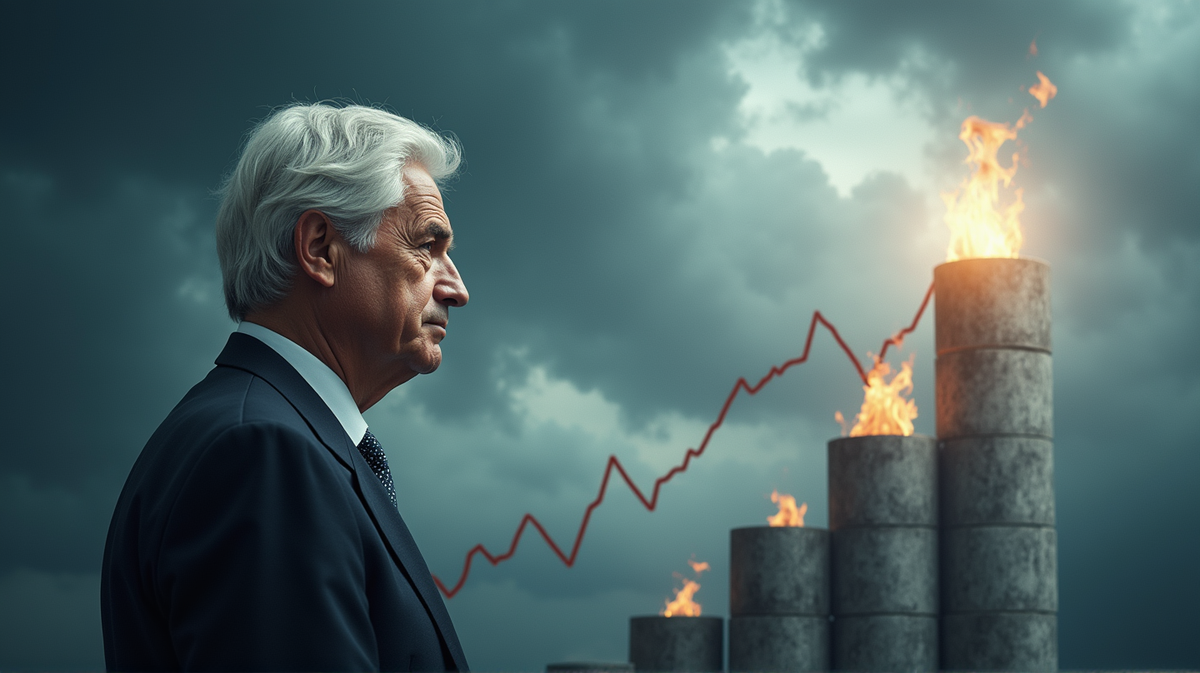Why Jamie Dimon's Doom-Saying Strikes a Chord Despite Record Profits
Jamie Dimon's persistent warnings about the economy contrast with JPMorgan's thriving performance. What drives this cautionary stance?

In the world of finance, few voices are as influential as Jamie Dimon, the CEO of JPMorgan Chase. While his constant alerts on economic risks might come as a surprise, given his bank’s stellar performance, they reveal deeper insights into the mind of a leader grounded in the harsh realities of banking’s unpredictable nature.
A Cautious Oracle
Jamie Dimon has never shied away from warning of economic perils looming on the horizon. This habit has persisted even as JPMorgan Chase rakes in record profits, securing its position as one of the most powerful financial institutions globally. Perhaps it’s the wisdom gleaned from navigating the 2008 financial crisis that has instilled in him the perspective that no institution, no matter how large, is invincible to the pendulum swings of the economy.
Navigating Stormy Waters
JPMorgan’s recent decade marks unprecedented growth. Under Dimon’s vigilance, the bank amassed record profits and technological advancements that set it apart from competitors. However, Dimon’s warnings, from a potential economic hurricane to a fraying geopolitical landscape, continue unabated. His perspective emphasizes not just growth but preparedness for the unseen crises.
Preparing for the Worst
In Dimon’s view, prudence prevails over optimism. He echoes age-old banking wisdom: a good banker is always prepared for inclement weather, even on a seemingly sunny day. His dire forecasts, paradoxically, seem to align with a strategy to fortify JPMorgan’s resilience against potential downturns.
Behind Dimon’s Rhetoric
Peers suggest a dual intention behind Dimon’s somber forecasts. By projecting potential risks, he keeps his management team focused, avoiding the complacency that can lead to a firm’s downfall. Such discipline ensures JPMorgan remains vigilant, even as it enjoys unparalleled success.
Facing Future Risks
No institution knows better than JPMorgan the transient nature of fortune in finance. Acquiring troubled banks like Bear Stearns and Washington Mutual has painted an intimate picture of the consequences of neglecting warning signals. According to CNBC, Dimon’s relentless caution can be seen as a deliberate strategy to safeguard against the unpredictability of the financial landscape.
The Legacy of Prudence
Even as Dimon prepares to step down, his legacy of cautious leadership plays a defining role. His foresight is not merely about predicting doom but about cultivating a culture that prioritizes readiness for the next financial upheaval. As he aptly predicted the impact of rising interest rates and other economic challenges, he ensures that JPMorgan remains prepared, no matter the economic weather.
Jamie Dimon’s strategy can indeed appear paradoxical—issuing warnings during prosperity. Yet it’s this very approach that has made him and JPMorgan Chase a formidable presence in the world of high finance. It’s about acknowledging vulnerabilities, exploiting growth responsibly, and most importantly, steering clear of naïveté in a field that rewards vigilance.